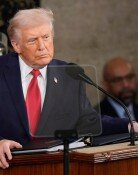S. Korean ruling party calls for bipartisan cooperation
S. Korean ruling party calls for bipartisan cooperation
Posted April. 18, 2020 07:25,
Updated April. 18, 2020 07:25
After securing 180 seats at the April 15 general elections, which was the best performance ever since the democratization of South Korea, the Democratic Party of Korea and the presidential office Cheong Wa Dae are bringing up the memories of the Uri Party. The Uri Party won 152 seats in the 2004 general elections becoming the ruling party, but faced a devastating defeat in less than four years due to the sub-par performance in handling state affairs.
“We should fulfill the responsibilities assigned to us and carefully run the party while deeply reflecting on the painful experience of the Uri Party,” Democratic Party of Korea Chairman Lee Hae-chan said during the disbanding ceremony of the party’s general election preparatory committee on Friday. “The seats we won have been given to us by the public and come with responsibility.”
“Any sign of arrogance, inexperience, impatience, and confusion should be avoided. In order to perform the duties assigned to us by the public, we have to listen to them while cooperating with the opposition party,” former Prime Minister Lee Nak-yeon also said, publicly calling for cooperation with the opposition parties. Even the members of the Cheong Wa Dae have been saying the mistakes of the Uri Party should not be repeated.
Even though the Democratic Party of Korea with 180 seats can now pass bills and budget plans without the agreement of the opposition parties, such a sentiment is growing as the party acknowledges its responsibility for all state matters as the global economic crisis has been unfolding as a result of the COVID-19 outbreak.
Accordingly, it has been reported that the ruling party is developing a cooperative governance model of appointing the members of the opposition parties during the cabinet reshuffle to be conducted in the second half of the year depending on the recovery from the COVID-19 outbreak. The model is to secure a stable foundation to administer state affairs by including the members of the opposition parties, rather simply pursuing a “strategic partnership” to pass bills at the National Assembly.
Sang-Jun Han alwaysj@donga.com · Hyung-Jun Hwang constant25@donga.com






![‘부화방탕 대명사’ 북한 2인자 최룡해의 퇴장 [주성하의 ‘北토크’]](https://dimg.donga.com/c/138/175/90/1/wps/NEWS/IMAGE/2026/02/27/133414028.1.jpg)
